In a supersized episode, Westworld closed its first season with a big spectacle as we reach the center of the maze, get some very needed answers and confirmations to some theories, and bittersweet endings for our favorite characters.
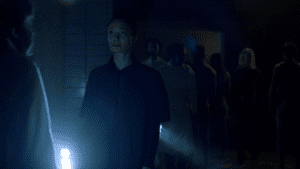 Before we go over all the plots concerning Dolores, let’s talk about our fave Maeve Millay who had the most interesting journey so far and, therefore, was kind of cheated by the narrative. True honesty, as much as the whole thing about her sentience being actually scripted may look like great storytelling and shocking twist, I feel like I was robbed somehow. It seemed unearned to me. We have been seeing her throughout this whole season expanding her mind and taking control of her agency and now the rug was pulled from under us.
Before we go over all the plots concerning Dolores, let’s talk about our fave Maeve Millay who had the most interesting journey so far and, therefore, was kind of cheated by the narrative. True honesty, as much as the whole thing about her sentience being actually scripted may look like great storytelling and shocking twist, I feel like I was robbed somehow. It seemed unearned to me. We have been seeing her throughout this whole season expanding her mind and taking control of her agency and now the rug was pulled from under us.
Not that it completely ruins Maeve’s story, it perhaps just cheapens it? It’s not even a severe decline in quality. It’s more of a “goddamn it” vibe than a “I’m dropping this show from my watchlist” one. It is also very bittersweet that she decided to go against her escape coding to go after his daughter, but it is also very understandable – plus, this is a genuine choice Maeve does.
Scripted or not, Maeve is still a fascinating and likable character…that’s my point. She is not a goody two shoes and my concern about her being unchallenged was mostly taken away in “The Bicameral Mind”: few things are as challenging as knowing you don’t have free will. Maeve is a morally grey person: she can be just as duplicitous as she can be loyal. She can be threatening and yet somehow tender even if she doesn’t express it often.
If there’s one thing I want to take it with me from this season of Westworld is how Maeve was a complete character on her own, having one of the best damn season long arcs I have ever witnessed.
 Recapping, Maeve was rebuilt from her fire injuries and immediately put herself on the job of “awakening” fellow hosts Hector and Armistice. This lead to quite the beat down and violence, if I may. Graphic, even. Seriously. The biting of the guy’s finger was painful to watch. It is in character for Armistice to do that – she has been portrayed as a violent host with a dark background which surely isn’t as three dimensional as we could want, but we will take it -, but still, a very “unnerving” scene, to say the least. The scene also paid reference to Stan Lee’s cameo in The Amazing Spider Man, for an ironic fun fact.
Recapping, Maeve was rebuilt from her fire injuries and immediately put herself on the job of “awakening” fellow hosts Hector and Armistice. This lead to quite the beat down and violence, if I may. Graphic, even. Seriously. The biting of the guy’s finger was painful to watch. It is in character for Armistice to do that – she has been portrayed as a violent host with a dark background which surely isn’t as three dimensional as we could want, but we will take it -, but still, a very “unnerving” scene, to say the least. The scene also paid reference to Stan Lee’s cameo in The Amazing Spider Man, for an ironic fun fact.
Then we have the Sleeping Host Rapist from a couple episodes ago who, as you could tell, doesn’t care about the gender of said host. Progressive, and yet, not really at all, considering this is like the second time HBO has given hypersexual bisexuals only now with the extra dose of rape mixed in. Did not blink an eye when he was stabbed by Hector – if anything, I was only wondering how they did that in terms of technical and production.
Two surgeons down, and we can finally begin our adventure towards freedom. Maeve and company head downstairs where the retired hosts are because Maeve wanted to sort of “say goodbye” to Clementine which was incredibly sweet. As coincidences go, this was actually a deserved one, because they find a dead Bernard. Two clicks in a touchpad and he’s back online.
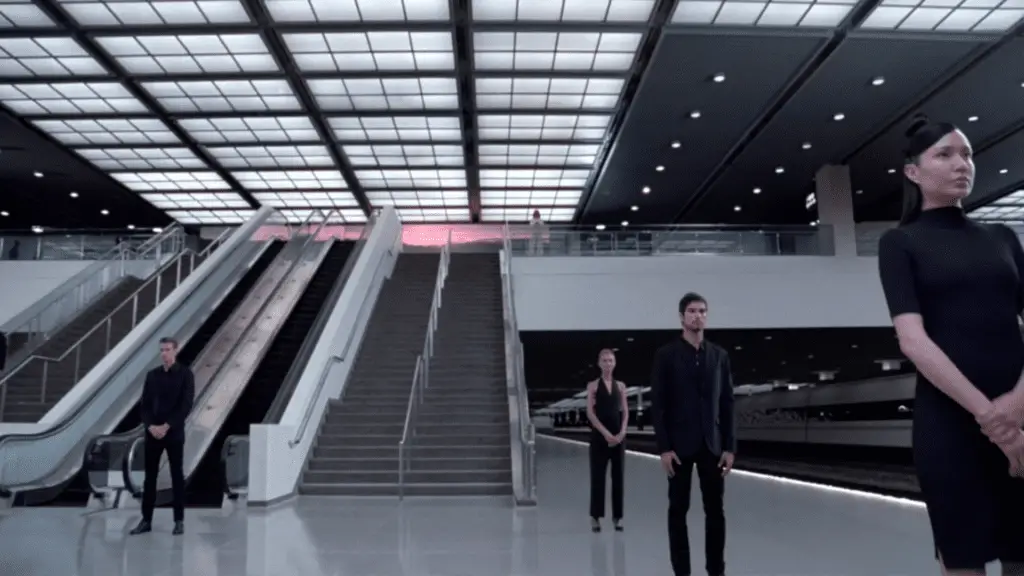
It is through Bernard and Felix that Maeve finds out that Arnold is responsible for her apparent sentience, even if it is as scripted as it can be. We also get the information that sentience is not a new event – a handful of hosts experience it every once in a while. Dolores, Maeve, and Bernard are just a few of the luckiest one to experience life before being rolled back into the pits of forgetfulness.
This sort of got me thinking: is all of this because Dolores said “these violent ends have violent delights” to Maeve? Is this a situation where a phrase code can unleash a new set of hidden instructions on a host’s code? Everything is still a bit confusing at this point, but that sounds logical.
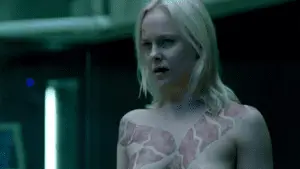 On a technical note, Ingrid Bolsø Bertal’s performance got severely hinged because of the head garments she wore inside the park: Armistice is really goddamn scary. It’s all in her eyes. Adding Armistice to the Escape Westworld Crew was a good thing. I would only take away that line about people/gods being “pussies” because that’s just bad writing, even if somehow in character; let’s just say that if Harley Quinn in Suicide Squad still calls people that, then it’s not a terrible reach that a woman from one or two early centuries can also do that, even if it’s problematic.
On a technical note, Ingrid Bolsø Bertal’s performance got severely hinged because of the head garments she wore inside the park: Armistice is really goddamn scary. It’s all in her eyes. Adding Armistice to the Escape Westworld Crew was a good thing. I would only take away that line about people/gods being “pussies” because that’s just bad writing, even if somehow in character; let’s just say that if Harley Quinn in Suicide Squad still calls people that, then it’s not a terrible reach that a woman from one or two early centuries can also do that, even if it’s problematic.
Anywho, after Armistice is gone, Maeve leaves Hector behind which is, you know, not a very nice thing to do, but still, in character for Maeve – her loyalty has been dialed all the way down and she even described herself as duplicitous. Felix hands it to her a piece of paper that contains the location of the host that used to be her daughter: she is in the park #1.
She leaves Westworld and is aboard the aesthetically pleasing train. There, she sees a woman and her kid having a nice moment. While this can bring all sorts of thoughts about why a parent would bring their child to the park (even if we have seen guest children already) to us, Maeve’s feelings are all about the daughter she knows is not hers, but her memories still provide love towards the kid. It’s all about memories, in the end. It’s like Bernard told Maeve: they are the first and most grounded step towards the kind of consciousness a host could develop.
Maeve leaves her passage towards freedom and goes back to Westworld to seek her child and that’s the last we see of her for the next two years give or take a few months. For all it’s worth, a memorable journey with its ups and down, brought by a brilliant performance by Thandie Newton.
There could also be mild speculation about Ford being somehow responsible by Maeve’s new scripting because of his attempts to fix his mistake with Arnold, but I find that harder to believe. I think he was putting all his eggs on the Dolores basket. Maeve’s scripting was, from my point of view, a legacy of Arnold’s programming, independent from Ford.
Before we dwell into the other bigger narrative, just a note about one loose thread that this season did not complete: Elsie and Ashley were absent from this episode. I don’t know if this is the non-graphic way of Westworld saying “give up, they’re dead” or if they couldn’t cram more reveals in the episode, but still, this was a huge let down. At this point and after a lot of denial, I guess I am starting to believe that Bernard really did kill Elsie. After all, what would be his excuse? He was being controlled by Ford.
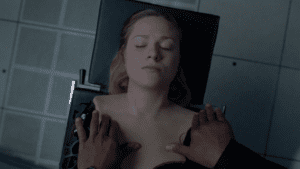 Finally, let’s get in the big bucks. Yes, the timeline theory was confirmed and it did not feel like a huge win because it had been considered as early as the second episode. The script did try to throw us off near the end, implying that the Man in Black was Logan because of the third-person narration the MIB used, but it was all a storytelling device so we could understand that the man William was in the past is not the *same* man we see in the present.
Finally, let’s get in the big bucks. Yes, the timeline theory was confirmed and it did not feel like a huge win because it had been considered as early as the second episode. The script did try to throw us off near the end, implying that the Man in Black was Logan because of the third-person narration the MIB used, but it was all a storytelling device so we could understand that the man William was in the past is not the *same* man we see in the present.
(For reviewing purposes, I’m still referring to older!William as MIB and younger!William as simply William.)
The biggest reveal was, in fact, how they presented the season, which was the confusing part, really. It was a blended mixture of past and present in Dolores’s mind. She was retracing her steps from thirty years ago having visions of her memories…valid, for we know that the hosts’ memories are vivid and give the feeling of actually “being there”.
In the end, we have been seeing present day Dolores for the longest time immersed in her own imagination.
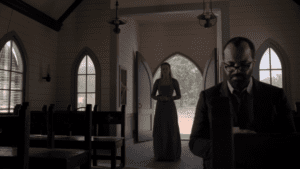 William, by the way, wound up not being as fascinating or interesting as one would have thought so. In the end, he was just “evil”, choosing the black hat and everything. The little clues and reveals we’ve been getting all season added up well so it’s not a huge surprise his role in the “present day”. He wanted to get to the center of the maze so he could experience pain and possibly death and that’s it.
William, by the way, wound up not being as fascinating or interesting as one would have thought so. In the end, he was just “evil”, choosing the black hat and everything. The little clues and reveals we’ve been getting all season added up well so it’s not a huge surprise his role in the “present day”. He wanted to get to the center of the maze so he could experience pain and possibly death and that’s it.
Sure, his scene being beaten down by Dolores was all wish fulfillment after being a douchebag for ten episodes. Him getting the upperhand was less deserved, I suppose. He came out of it with a dislocated shoulder and sadness because the maze wasn’t made for him.
In addition, we also got some exposition heavy flashbacks featuring Arnold and his discovery that consciousness is not a simple pyramid, but something that happens within itself, looping around memory and improvisation.
The maze was, besides a kids game, a metaphor for finding one self, I believe. Finding the voice inside your head. Your inner monologue. Arnold’s modulated voice became Dolores’s in her head. There were no gods speaking down or creators telling her what to do. Dolores’s quest was one to find herself and it was a very poignant one.
It was also about the acceptance that she is not who she thinks she is. Dolores is far more complicated – grey, even – than the damsel she is meant to be. The villain in her takes the name of Wyatt, her other half, merged together years ago by Arnold. It was this merge that killed all those people at Escalante in the past – including Arnold.
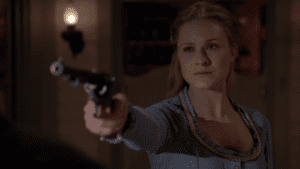 Ford got pushed off his own company, but not before inaugurating Journey Into the Night, his next big thing. Sad that history repeats itself, because Ford’s game was one of repentance for his own mistake. Dolores needed to have the agency to do something irreversible with her own choice given killing Arnold was not entirely it. She is meant to be Wyatt just as Wyatt is meant to be her and that’s why she *chose* to perform a murder spree on the guests.
Ford got pushed off his own company, but not before inaugurating Journey Into the Night, his next big thing. Sad that history repeats itself, because Ford’s game was one of repentance for his own mistake. Dolores needed to have the agency to do something irreversible with her own choice given killing Arnold was not entirely it. She is meant to be Wyatt just as Wyatt is meant to be her and that’s why she *chose* to perform a murder spree on the guests.
Dr. Ford got his bitter end as the “anyone can die” storytelling comes to HBO again – this time, it’s Sir Anthony Hopkins who gets it. I understand this since filming for Westworld must have taken months of his time. I still think he may find a way to stick around, but if not, he played well a part filled with a lack of regret and the yearning for forgiveness/doing right by a partner.
However, as it appears, the new storyline propelled by Dolores’s choices also feature all those retired hosts in a position of power. Demonstrated by Clementine, they can now injure the guests. Westworld gave us and the guests the center of the maze. I guess the MIB did get his happy ending after all.
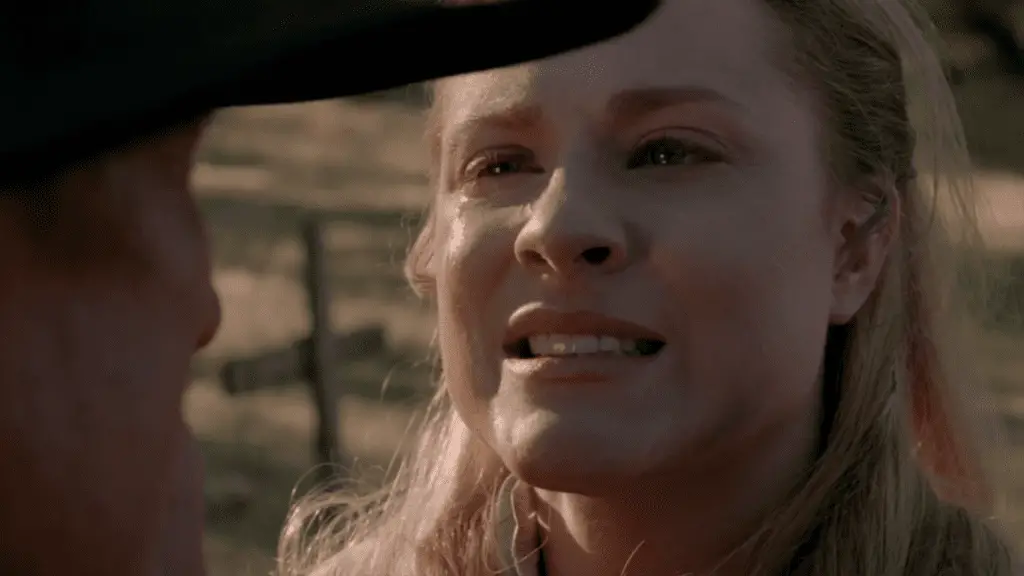
Logan played a small part in “The Bicameral Mind”: dragged around by William, being off-character when his ‘friend’ was being a dick to hosts (this is a man who stabbed an old host’s hand in his first episode so ‘flinching’ was bit unexpected), and then being tied naked to a horse to somewhere. I guess it is implied that he died and never made it back outside? I don’t know. Hard to tell. Also, meaningless, no matter how much I like Ben Barnes.
Nonetheless, as solid episodes of Westworld goes, this one was doozy. Answered most of the questions it has been proposing since “The Original” fueled by elegant performances, amazing special effects (that first scene with Dolores’s robotics? Incredible!), and a generally good and progressive storytelling and writing. Sure, the show had its problems and I believe it comes from being made as a piece of media.
I understand 100% that the setting Jonathan Nolan and Lisa Joy chose gives opening to a lot of the more problematic things because of the “that’s how it was back then” and violence was expected. I still hold my grudges against the more graphic and gratuitous portions (looking at Theresa Cullen’s unjust death which didn’t affect the finale, in the end), but it is like this one scene from the episode when that woman shoots the host in the shoulder and the people around it clap and applause.
It’s NC-17 media in a post The Walking Dead, Empire, and Game of Thrones world. Sure, the meta commentary is okay and the show did gain points for its actual use of nudity as more than just for titillation, but it only goes so far because Westworld, in the end, does exactly what that scene did. It created big spectacles of violence and sex mixed with a good plot and a few endearing characters gaining a big following and the subtitle “HBO’s Next Big Thing/TV’s Next Big Thing”.
I’m just glad that the creators have some notion of what they are doing and I hope that season 2 continues to deliver and not fall on problematic and clichéd tropes.

